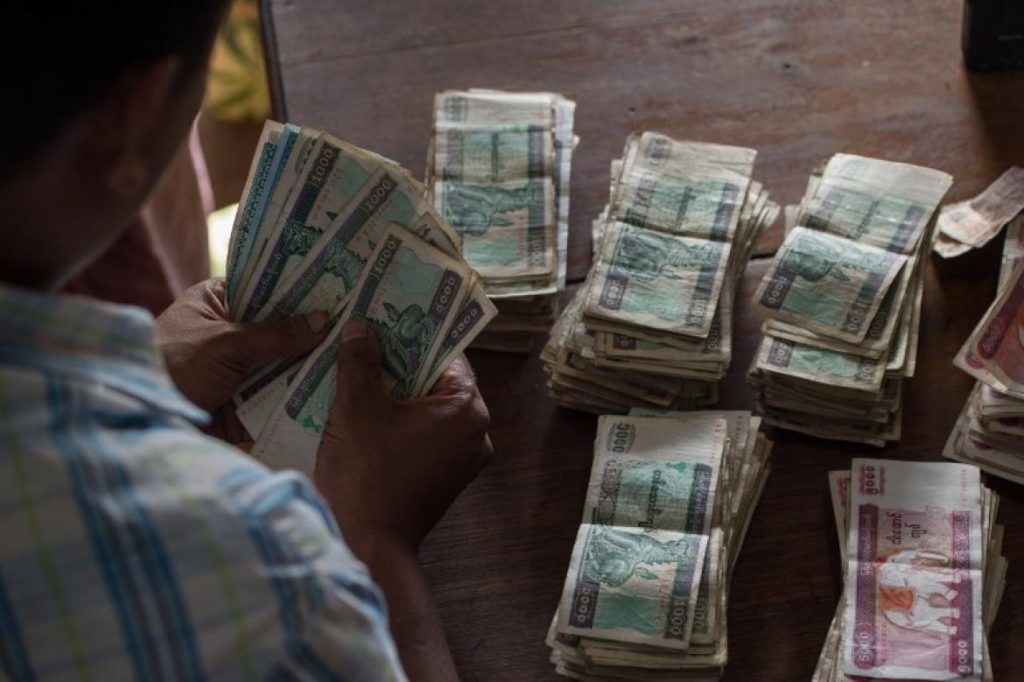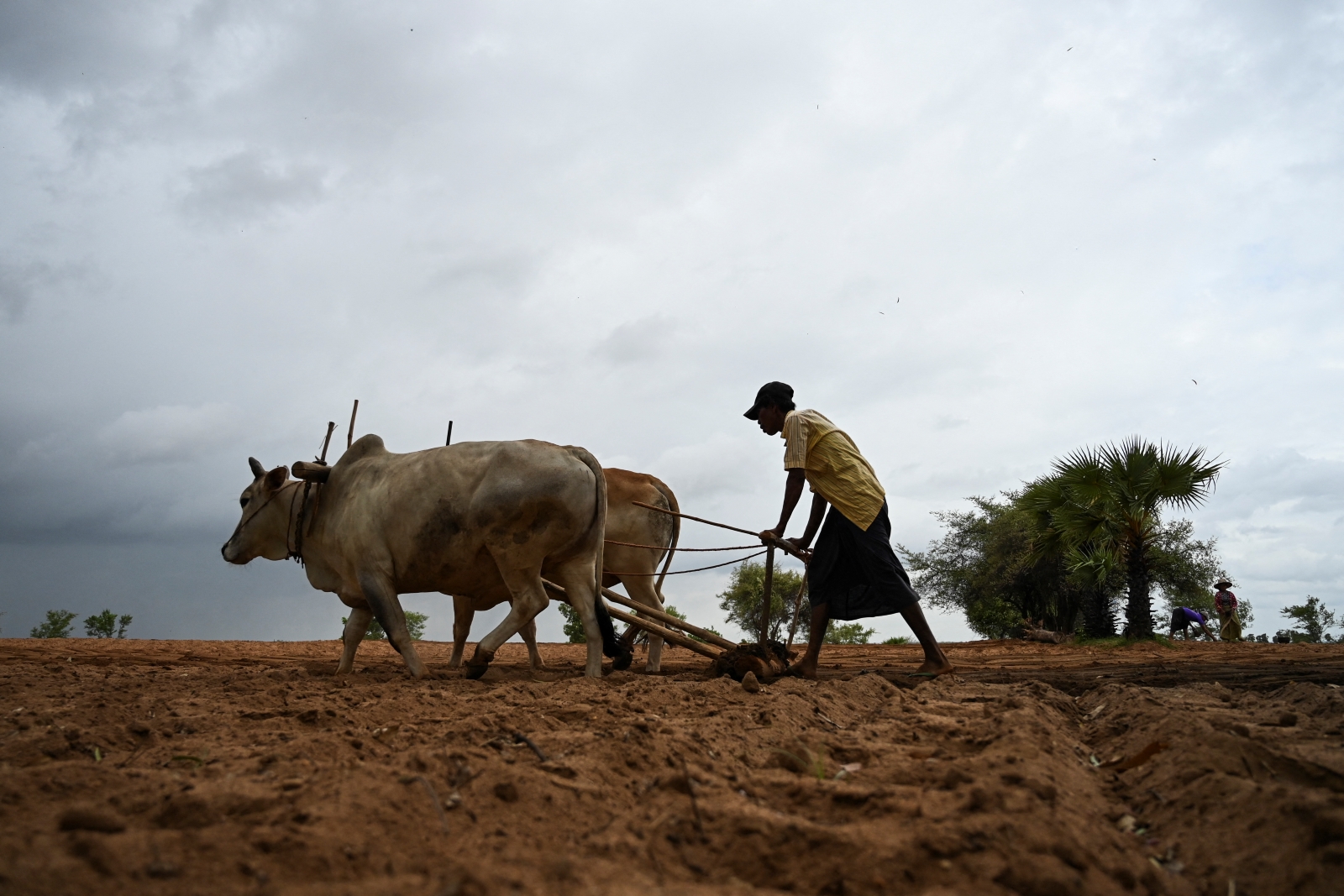By THOMAS KEAN | FRONTIER
YANGON — An assessment of Myanmar’s efforts to tackle money laundering and terrorist financing has found significant weaknesses, including a failure to recognise the “serious” money laundering risks that the country faces.
The Asia/Pacific Group on Money Laundering released the Mutual Evaluation Report on October 22, three months after it was adopted at the APG annual meeting in July.
The “poor results” on the evaluation mean Myanmar will automatically be reviewed by the International Co-operation Review Group of the Financial Action Task Force, and may be placed on a black or grey list following that review.
Myanmar was removed from the FATF’s list of high-risk and monitored jurisdictions in 2016 following some limited reforms.
Major improvements needed
Support more independent journalism like this. Sign up to be a Frontier member.
The Mutual Evaluation Report found that despite Myanmar being exposed to “a large number of very significant” money laundering threats, the authorities did not demonstrate a “credible understanding” of the risks.
Myanmar needed to make “major improvements” in a range of areas, including investigation and prosecution of money laundering and terrorist financing, and confiscation of the proceeds of crime.
Money laundering investigations are “not prioritised” and typically occur only after the successful prosecution of a related offence, such as drug trafficking, in order to identify and confiscate assets, the report said. As a result, only a tiny proportion of overall proceeds of crime are confiscated, and investigations are not pursued beyond Myanmar’s borders.
Myanmar was also taken to task for its failure to pursue international cooperation, particularly in regard to money laundering, but the country fared somewhat better in regard to tackling terrorist financing.
The evaluation was based on information provided by Myanmar and gathered by an evaluation team during a visit to Myanmar in late 2017.
The APG is one of nine regional bodies that work with the FATF to combat money laundering, the financing of terrorism and the financing of the proliferation of weapons of mass destruction.
Myanmar spent more than a decade on an FATF blacklist for non-cooperative states until 2016. In June of that year it was removed due to the “significant progress” it had made in establishing the legal and regulatory framework to meet commitments regarding the strategic deficiencies identified by the FATF in February 2010, the organisation said.
The decision to remove Myanmar followed a brief field visit, the Myanmar Times reported at the time, but the Mutual Evaluation Report is a more rigorous assessment of whether the country is tackling money laundering and terrorist financing.
Crime a US$15 billion business
By Myanmar’s own estimate, proceeds of crime are likely to total around US$15 billion a year, or around 24 percent of GDP.
A national risk assessment drafted with International Monetary Fund support as part of the mutual evaluation process estimated that 63 percent of this figure was derived from tax and excise evasion, environmental crime, and corruption and bribery.
Almost 50 percent of proceeds were generated by activities carried out by transnational crime groups and another 35 percent by domestic organized crime, the assessment estimated. Between 30 and 40 percent of the proceeds of crime is believed to flow out of Myanmar each year, with China and Thailand thought to be the main destinations.
The national risk assessment acknowledged that law enforcement agencies were “not very effective” at conducting money laundering investigations, and were hampered not only by a lack of resources and training, but also a perception that officers could be bribed.
The Mutual Evaluation Report said Myanmar’s risk assessment appeared to “under-rate the significance of drug production and trafficking, as well as the role of corruption in predicate crimes and money laundering”. There was also no analysis of how proceeds of crime are laundered within Myanmar, it noted.
Improvements from a low base
Of the 40 counter-measures against money laundering recommended by the Financial Action Task Force, Myanmar was deemed to be in compliance with only six, largely compliant with 10, partially compliant with 18 and non-compliant with six.
It was evaluated as non-compliant on a recommendation concerning money and value transfer services, largely due to the lack of regulation in relation to the informal remittance network known as hundi.
Similarly, Myanmar was deemed non-compliant on a recommendation concerning Designated Non-Financial Business or Professions, partly because of the operations of unlicensed casinos.
Jurisdictions that are deemed to have achieved “poor results” on the evaluation by meeting at least one of four criteria – for example, being non-compliant or partially compliant on 20 or more of the 40 recommendations – are automatically referred to the ICRG for review. Myanmar met three of four criteria for review.
If Myanmar is prioritised by the ICRG, it will have to agree on an action plan with the group requiring it to take actions to rectify deficiencies and report directly to the FATF on the progress made within a specified time frame. It may then be added to the FATF’s list of high-risk and other monitored jurisdictions, which presently includes only North Korea and Iran.
However, the 2018 Mutual Evaluation Report still represented a significant improvement on Myanmar’s last evaluation in 2008, when it was compliant or largely compliant on only four recommendations.
Among the steps that Myanmar has taken are the introduction of a revised money laundering offence in 2014 and a revised terrorist financing offence the following year. Organisational changes to a number of government bodies has led to “changes and some improvements”, the evaluation noted.
However, the Mutual Evaluation Report said most of the reforms undertaken to address money laundering and terrorist financing risks appeared to be “ad hoc” and aimed at being removed from the FATF black list rather than addressing identified money laundering risks.







